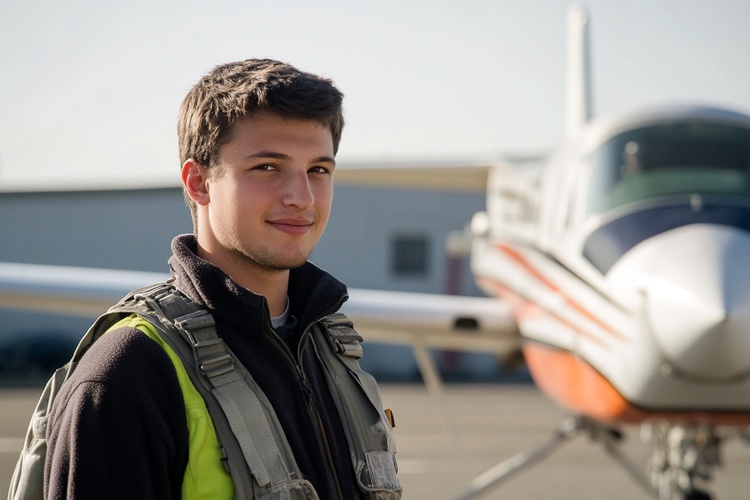Begin Your Aviation Training Journey in the United Kingdom
In the United Kingdom, individuals who speak English and are interested in aviation can consider embarking on a training journey. Various beginner aviation training programs are accessible, designed to provide foundational knowledge and skills for those aspiring to enter the aviation industry. Understanding the requirements and options available can aid in making informed decisions about pursuing this path.

Aviation training in the United Kingdom encompasses a wide range of educational programs designed to equip students with the knowledge and skills necessary for various roles within the aviation sector. From private pilot licenses to commercial airline transport pilot licenses, the UK offers structured training pathways that comply with international standards set by the Civil Aviation Authority (CAA) and the European Union Aviation Safety Agency (EASA).
Understanding the Pathway to Aviation Training in the UK
The journey into aviation training typically begins with selecting the appropriate course based on your career goals. For those aiming to become professional pilots, the most common route is the Integrated Airline Transport Pilot License (ATPL) course, which combines theoretical knowledge with practical flight training. This intensive program usually spans 18 to 24 months and covers subjects such as navigation, meteorology, aircraft systems, and human performance. Alternatively, the modular training route allows students to complete their licenses in stages, offering greater flexibility for those balancing other commitments. Beyond pilot training, the UK also offers programs in aircraft engineering, cabin crew training, and aviation management, providing diverse entry points into the industry.
Requirements for Beginners in Aviation Training Programs
Entering aviation training requires meeting specific eligibility criteria that ensure candidates are prepared for the demands of the profession. For pilot training, applicants must be at least 18 years old to obtain a commercial pilot license, though some programs accept students from age 16 for private pilot licenses. A good standard of physical fitness is essential, and all candidates must pass a Class 1 medical examination conducted by an authorized aviation medical examiner. This assessment evaluates vision, hearing, cardiovascular health, and overall fitness to ensure safety in flight operations. Academically, most flight schools require a minimum of five GCSEs or equivalent qualifications, including English and mathematics. Proficiency in English is particularly important, as it is the international language of aviation. Some training organizations may also conduct aptitude tests to assess spatial awareness, multitasking abilities, and decision-making skills.
Overview of Aviation Training Options for English Speakers
English-speaking students benefit from the UK’s extensive network of approved training organizations that deliver courses in English, adhering to international aviation standards. Flight training schools are located throughout the country, from Scotland to southern England, offering varied training environments and weather conditions that enhance pilot experience. Many institutions provide both integrated and modular training programs, allowing students to choose the pathway that best suits their learning style and financial situation. Ground school instruction covers essential theoretical knowledge, while flight training takes place in modern aircraft equipped with advanced avionics. Some schools also offer multi-engine and instrument rating courses, which are critical for commercial aviation careers. Additionally, several UK institutions have partnerships with airlines, providing pathways to employment upon successful completion of training.
Cost Considerations for Aviation Training in the UK
Aviation training represents a significant financial investment, and understanding the costs involved is crucial for prospective students. The total expense varies depending on the type of license pursued and the training organization selected. Integrated ATPL courses typically range from £80,000 to £120,000, covering ground school, flight hours, examinations, and licensing fees. Modular training can be more affordable initially, with a Private Pilot License (PPL) costing between £8,000 and £12,000, though the cumulative cost of completing all required licenses may be similar to integrated programs. Additional expenses include accommodation, living costs, medical examinations, and study materials. Some training schools offer financing options or payment plans to help manage these costs.
| Training Program | Provider Examples | Cost Estimation |
|---|---|---|
| Integrated ATPL | CAE Oxford, FTA Global, L3Harris | £80,000 - £120,000 |
| Modular ATPL | Bristol Groundschool, FlyBe Academy | £70,000 - £100,000 |
| Private Pilot License | Local flying clubs, Cabair | £8,000 - £12,000 |
| Multi-Engine Rating | Various approved schools | £3,000 - £6,000 |
| Instrument Rating | CTC Wings, Tayside Aviation | £8,000 - £15,000 |
Prices, rates, or cost estimates mentioned in this article are based on the latest available information but may change over time. Independent research is advised before making financial decisions.
Regulatory Framework and Certification
The UK aviation training sector operates under the oversight of the Civil Aviation Authority, which ensures that all training organizations meet stringent safety and educational standards. Following Brexit, the UK has maintained alignment with EASA regulations while developing its own regulatory framework, ensuring that licenses obtained in the UK remain recognized internationally. Training organizations must hold approval from the CAA to deliver courses, and instructors must possess appropriate qualifications and ratings. The licensing process involves completing the required flight hours, passing theoretical examinations, and demonstrating proficiency in practical flight tests. Upon successful completion, graduates receive licenses that enable them to pursue careers with airlines, charter companies, or other aviation operators worldwide. The regulatory framework also includes ongoing requirements for license renewal and recurrent training to maintain currency and safety standards.
Pursuing aviation training in the United Kingdom offers aspiring professionals a robust educational foundation supported by a well-regulated industry and diverse training options. By understanding the pathways available, meeting the necessary requirements, and carefully considering the financial commitment, individuals can embark on a rewarding career in aviation with confidence and preparation.




